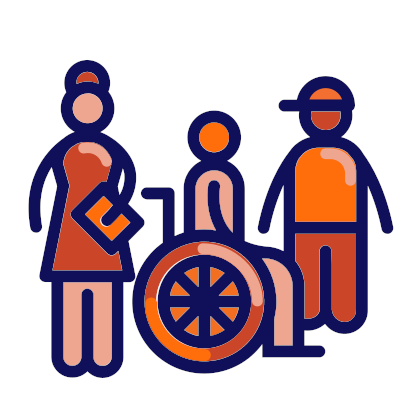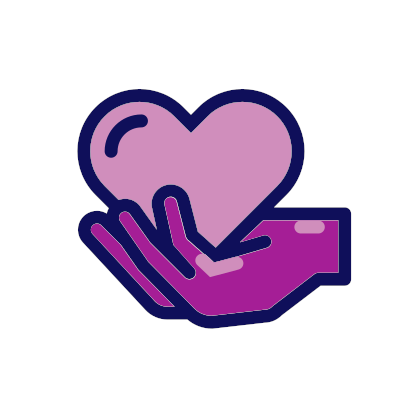Addressing controversial issues

However, being able to discuss sensitive and controversial issues in a respectful way is a vital skill in a democratic culture.
Schools must be places where students feel safe to engage in debates with people who have different opinions. Through the careful management of discussions on controversial issues, schools can promote freedom of expression, as well as inclusion, tolerance, and human rights and prevent, or counter, the use of hate speech by students.
To achieve this, a school action plan on managing controversial issues – which provides staff training – should be adopted as a priority.
Facts & Figures
71% of teachers and school leaders surveyed agreed that it is very important that all students in their school express their views openly, even when their views might be controversial.[1]
In response to the question, ‘How valuable is the study of the Holocaust for primary children?’ 88% of teachers viewed Holocaust teaching to be either ‘worthwhile’ or ‘very valuable’ to the primary pupil, although only 48% had actually taught it.[2]
What are controversial issues?
Controversial issues are issues which arouse strong feelings and divide communities.
Issues like these can arise anywhere at any time. They vary from the local to the global – from minarets to climate change. They also vary from place to place, e.g., gay marriage is relatively uncontentious in some countries, but highly controversial in others. Some are long-standing controversies, e.g., the ‘Troubles’ in Northern Ireland, the Israel-Palestine conflict and the ‘Kurdish issue’ in Turkey; while others are more recent, e.g., refugees, violent extremism and transgender issues.
What all these issues have in common is that they are complex, not easily settled by appeal to evidence alone and highly emotive – so much so that people often have difficulty discussing them rationally.
Why is it important to address controversial issues at school?
While it might be tempting for schools to try to shy away from issues like these, this is neither beneficial nor practical.
Discussing controversial issues helps students with different backgrounds and lifestyles to learn to live and work together peacefully and respectfully. It encourages them to listen to each other and talk through their differences sensitively. It also challenges them to think critically about their own beliefs and values and gives them confidence and skills to express these publicly.
Talking through difficult issues together develops a number of important democratic competences, e.g., openness to other cultures and beliefs, analytical and critical thinking skills, flexibility and adaptability, and tolerance of ambiguity - all of which lie at the heart of the Council of Europe Reference Framework of Competences for Democratic Culture.
Handled well, it breaks down barriers and helps to defuse social tension between opposing groups, both in school and the wider community.
Exploring controversial issues has educational as well as personal and social benefits. Issues like these help to define some of the major social, political, economic and moral fault-lines in contemporary life and underpin academic learning in many school subjects.
The strongest argument for addressing controversial issues explicitly, however, is that, in practice, they simply cannot be avoided. If teachers do not raise these issues, their students will.
Through training in the teaching of controversial issues, I have found the courage to discuss openly with my students issues I thought I would never be able to do, e.g., about sexual abuse and the porn industry.” Teacher, Iceland
What are the challenges?
The biggest challenge is creating a school ethos in which students genuinely feel they can speak openly about their concerns without fear of vilification or ridicule.
Creating such an ethos requires a whole-school approach. It includes among other things:
- teachers having the confidence and skills to handle discussion of difficult issues in the classroom, e.g., knowing how to deal with their own prejudices and biases, protect vulnerable individuals and marginalised groups, present issues even-handedly, cope with a lack of expert knowledge, and handle spontaneous or unexpected questions and remarks constructively;
- school leaders encouraging their staff to take on issues which are controversial and maintaining a consistency of approach across the school, e.g., by providing leadership, professional development, opportunities for team teaching, guidance and support, and risk management;
- parents and local communities feeling assured that the school is on their side, e.g., being confident the school will not misrepresent or try to undermine their views or culture.
How can schools get active?
A good way for schools to begin is by:
- identifying where controversial issues already feature in the school curriculum and discussing how these are currently handled, e.g., evolution, climate change or animal testing in Science;
- considering new opportunities for introducing controversial issues into other school subjects and how they might be incorporated into teaching, e.g., the use and abuse of social statistics in Maths;
- developing ground rules for classroom discussion which guarantee everyone a voice to express their opinion and encourage respect for whoever wishes to speak;
- creating a small support group to help teachers develop techniques for managing discussion of difficult issues, e.g., how to ‘de-personalise’ an issue by using a story or historical parallel, or helping students to consider alternative perspectives by putting them in other people’s shoes;
- liaising with students and parents to ensure specific issues are handled fairly and with appropriate methods;
- introducing more opportunities for discussion in school life and decision-making generally, e.g., in parents’ meetings, staff meetings and pupil parliaments.
[1] ‘Free to speak, Safe to learn – Democratic schools for all’ Survey, First Trends, 2018
[2] Cowan & Maitles, ‘Feature or Footnote? Teachers’ attitudes towards the teaching of the Holocaust in primary schools in Scotland’.
 Resources on Addressing Controversial Issues
Resources on Addressing Controversial Issues
Multimedia
- Crossroads of European Histories - Multiple Outlooks on Five Key Moments in the History of Europe (CD + Book) (2009)
- Education for Democracy and Human Rights in 10 Steps (2017)
- How can schools support students to be active citizens?
- Living in harmony together: the role of schools? (2014)
- Re-Thinking Education Policy For The 21st Century (2014) (Jón Torfi Jónasson)
- Shared histories for a Europe without dividing lines (2014)
- Through the Wild Web Woods – An online Internet safety game for children - Teachers guide (2013)
- What is the Charter on citizenship and human rights education?
Official texts
- Comparative study on blocking, filtering and take-down of illegal internet content (2017)
- Education for change - Change for education
- Eradicating violence against children - Council of Europe actions (2008)
- ETINED - Volume 1: 7th Session of the Prague Forum (2016)
- Freedom(s) - Learning activities for secondary schools on the case law of the European Court of Human Rights (2015)
- Global Education Guidelines. A Handbook for Educators to Understand and implement Global Education (2012)
- Guidelines for educators on combating intolerance and discrimination against Muslims – Addressing Islamophobia through Education (2011)
- Human Rights and Democracy Start with Us - Charter for All: Brochure for children, Guide for educators and a Poster (2014)
- Report of the Intergovernmental Policy Forum: The right of learners to quality and equity in education – the role of language and intercultural skills (2010)
- The Lisbon Recognition Convention at 15: making faire recognition a reality (Council of Europe higher education series No. 19) (2014)
- Thematic factsheets highlighting the European Court of Human Rights relevant case-law on issues relating to media freedom
- What is the Charter on citizenship and human rights education?
Policy documents
- Addressing violence in schools (2016)
- Bullying: Perspectives, Practices and Insights (2017)
- Comparative study on blocking, filtering and take-down of illegal internet content (2017)
- Compasito - manual on human rights education for children (2000)
- Compass - manual for human rights education with young people online resource (2002)
- Competences for democratic culture - Living together as equals in culturally diverse democratic societies (2016) A conceptual model of competences
- Curriculum Development and Review for Democratic Citizenship and Human Rights Education (2015)
- Developing attitudes to recognition: substantial differences in an age of globalisation (Council of Europe higher education series No. 13) (2010)
- Digital citizenship education - Volume 1: Overview and new perspective. Supporting children and young people to participate safely, effectively, critically and responsibly in a world filled with social media and digital technologies. (2017)
- Digital Citizenship Education (DCE) - 10 Domains leaflet
- Education for change - Change for education
- Education for Democracy and Human Rights in 10 Steps (2017)
- Education for democratic citizenship: policies and regulatory frameworks (2003)
- Equal opportunities for all children: Non-discrimination of lesbian, gay, bisexual, transgender and intersex (LGBTI) children and young people (2016)
- Eradicating violence against children - Council of Europe actions (2008)
- ETINED - Volume 1: 7th Session of the Prague Forum (2016)
- ETINED - Volume 2: Ethical principles (2016)
- ETINED - Volume 4: Codes of conduct for teachers in Europe: A background study (2017)
- ETINED - Volume 5: South-East European Project on Policies for Academic Integrity (2018)
- Freedom(s) - Learning activities for secondary schools on the case law of the European Court of Human Rights (2015)
- From linguistic diversity to Plurilingual education: Guide for the development of language education policies in Europe (2007)
- Gender Matters. A manual on addressing gender-based violence affecting young people 2007 (reprint 2013)
- Global Education Guidelines. A Handbook for Educators to Understand and implement Global Education (2012)
- Guide for the development and implementation of curricula for Plurilingual and intercultural education (2016)
- Guidelines for educators on combating intolerance and discrimination against Muslims – Addressing Islamophobia through Education (2011)
- Higher Education and Democratic Culture: Citizenship, Human Rights and Civic Responsibility (Council of Europe higher education series No. 8) (2008)
- History education in Europe. Ten years of co-operation between the Russian Federation and the Council of Europe (2006)
- Human Rights and Democracy in Action Pilot Projects Scheme (2013-2014)
- Intercultural dialogue on Campus (Council of Europe higher education series No. 11) (2009)
- Language support for adult refugees: a Council of Europe toolkit (2017)
- Learning to live together. Council of Europe report on the state of citizenship and human rights education in Europe (2017)
- Living with Controversy - Teaching Controversial Issues Through Education for Democratic Citizenship and Human Rights (EDC/HRE) (2016)
- Managing controversy (2017). A self-reflection tool for school leaders and senior managers
- Multicultural Societies, Pluricultural People and the Project of Intercultural Education (2009)
- Open minds, free minds - No easy prey for counterfeit medicines and similarly dangerous medicines - Psycho-pedagogical concept guide for teachers (2015)
- Plurilingual and intercultural competence (2009)
- Plurilingual and intercultural education as a project (2009)
- Plurilingual and intercultural education as a right (2009)
- Quality history education in the 21st century. Principles and guidelines (2018)
- Re-Thinking Education Policy For The 21st Century (2014) (Jón Torfi Jónasson)
- Reference Framework of Competences for Democratic Culture Volume 1: Context, concepts and model (2018)
- Reference Framework of Competences for Democratic Culture Volume 2: Descriptors (2018)
- Reference Framework of Competences for Democratic Culture Volume 3: Guidance for implementation (2018)
- Report of the Intergovernmental Policy Forum: The right of learners to quality and equity in education – the role of language and intercultural skills (2010)
- Speaking across borders: the role of higher education in furthering intercultural dialogue (Council of Europe higher education series No. 16) (2010)
- Specifying languages’ contribution to intercultural education. Lessons learned from the CEFR (2013)
- Strategic support for decision makers - Policy tool for education for democratic citizenship and human rights (2010)
- Students as suspects? - The challenges of counter-radicalisation policies in education in the Council of Europe member states (2018)
- The linguistic integration of adult migrants: from one country to another, from one language to another (2014)
- The Lisbon Recognition Convention at 15: making faire recognition a reality (Council of Europe higher education series No. 19) (2014)
- The public responsibility for higher education and research. (Council of Europe higher education series No. 2) (2005)
- The university as res publica - Higher education governance, student participation and the university as a site of citizenship (Council of Europe higher education series No. 1) (2004)
- Thematic factsheets highlighting the European Court of Human Rights relevant case-law on issues relating to media freedom
- Volume 3 - Ethical behaviour of all actors in education
- What is citizenship and human rights education? (2015) Leaflet
 Related schools projects
Related schools projects
Address: 1, Grigori Lambraki Street
Country: Greece
Project: New steps on an old path: Integrating Intangible Cultural Heritage and Competences for Democratic Culture in the daily teaching practice
 Working language during the project:
Working language during the project:
- Greek
- English
 Themes of the Council of Europe project “FREE to SPEAK, SAFE to LEARN - Democratic Schools for All” covered:
Themes of the Council of Europe project “FREE to SPEAK, SAFE to LEARN - Democratic Schools for All” covered:
- Addressing controversial issues
- Tackling discrimination
 Competences from the Reference Framework of Competences for Democratic Culture (CDC) addressed and where / how they were integrated:
Competences from the Reference Framework of Competences for Democratic Culture (CDC) addressed and where / how they were integrated:
- Knowledge and critical understanding of the world: politics, law, human rights, culture, cultures, religions, history, media, economies, environment, sustainability
By exploring in class and as part of the lesson the historical background and origins of the Rebetiko musical form (from war refugees) and its social background (the social position of women in the beginning of the 20th century in Greece) - Analytical and critical thinking skills
Examining the historical and social information from the Rebetiko era through projects on the lives of composers and singers and through creative writing activities related to the lyrics of the songs (gender stereotypes) to identify similarities and differences between the past and the present and to assist in making evaluative judgements - Autonomous learning skills
By providing students with various types of assessment forms at the end of each stage of the project to encourage self -reflection on what was learnt
 Target group age range:
Target group age range:
- 15 - 19
 Level of education:
Level of education:
- Upper secondary education
Short description of the project:
This experimental pilot project was developed in the framework of the joint UNESCO-European Union project “Engaging Youth for an Inclusive and Sustainable Europe” and focuses on the idea of integrating Intangible Cultural Heritage as a teaching tool to be used in the daily teaching practice of various upper secondary subjects , rather than as a topic for extra-curricular projects and activities, in order to cultivate respect, appreciation for diversity and democratic culture and to create a space for everyone to participate. This interdisciplinary educational scenario comprises four lesson plans for teaching four different subjects to students of A and B classes using the musical and cultural form Rebetiko from three different perspectives: to serve the aims and objectives of the national curriculum for those subjects, to explore the intangible cultural element itself, thus contributing to its safeguarding and to provide the background for integrating democratic competences of the Reference Framework of Competences for Democratic Culture in the daily teaching practice of curricular subjects.
Rebetiko is a form of musical and cultural expression directly linked to song and dance, inscribed on the Representative List of Intangible Cultural heritage of Humanity in 2017. After the exchange of populations (in 1922, the Greek-Orthodox living in Asia Minor were obliged to leave Turkey and Muslims to leave Greece), it became one of the primary musical expressions of the refugee groups that settled in most Greek urban centres, acting as a powerful reference point for collective memory and identity and expressing the plight of the refugees, who were uprooted by war or extreme economic distress. It is mainly a musical genre which, however, was also related socially to a specific “sub-culture” from the 1920’s to the 1950’s and was associated with a “bohemian” lifestyle and “emancipated” women. This was socially condemned and in the 1930s Rebetiko was censored rigorously as an expression of the “dangerous classes”.
The subject of English as a Foreign Language was used to familiarise students with the historical origins and social background of Rebetiko, based on the English version of the formal application text by the Greek Ministry of Culture. Through KWL charts, reading activities and guided discussion during the lesson and by researching the life of composers and singers at home, students learnt about war refugees, immigrants, social inclusion and gender stereotypes. They also attended a special screening of three ethnographic documentaries in the framework of the Ethnofest, followed by an interview-discussion with an expert of the Ministry of Culture regarding knowing and understanding of one’s own cultural affiliations and sensitivity towards cultural diversity.
Using creative writing techniques to initiate guided group and class discussion, the subject of Greek Literature focused mainly on the social position of women in the (conservative) Greek society of the time and the completely different type of (emancipated) women portrayed in the lyrics of 3 popular Rebetiko love songs, thus exploring gender stereotypes and allowing for understanding of the relevance of the past to issues of the present.
The evaluation methods used included KWL charts and 3,2,1 report sheets to allow for self-reflection in the framework of autonomous learning.
In order to foster the insight gained, B class students learned the steps of the three main Rebetiko dances in their Physical Education class, practicing the cultural element itself, connecting the historical and social origin of the songs to their actual artistic expression while enhancing their self-efficacy. In their ICT class, as part of the A class syllabus, students cooperated seamlessly and developed the Rebetiko application for mobile phones to document and disseminate the pilot project.
 Aims/objectives
Aims/objectives
To explore the intangible cultural element itself and to contribute to its safe guarding, as it is local to the area where the school is situated, and to integrate it in the daily teaching practice of curricular subjects to serve their aims and objectives while increasing their relevance.
To provide the background (war refugees, gender stereotypes) for integrating democratic competences of the Reference Framework of Competences for Democratic Culture in the daily teaching practice of curricular subjects, such as valuing cultural diversity, respect, civic mindedness, understanding how our perspective of the world is contingent upon our cultural affiliations and experiences, autonomous learning skills, analytical and critical learning skills.
 Expected results/outcomes
Expected results/outcomes
- To further foster the cooperative school culture
- To enhance Communication, Collaboration, Creativity and Critical Thinking among both teachers and students
- To develop flexibility and adaptability as well as self-efficacy among both teachers and students
 Changes
Changes
Both the teachers and the students enjoyed these “different” lessons which made use of a different teaching “tool” and approach, as opposed to the norm (knowledge and teacher cantered teaching) due to time constraints at upper secondary level schools. This teaching approach initiative has remained in the school culture and is currently being used not only in designing lesson plans for classroom use but also, due to its modular nature, in designing extracurricular activities of various kinds initiated in and/or closely linked to the classroom practice (Erasmus+ projects, environmental and cultural programmes). In this way, both the curricular aims and the CDC competences are equally taken into account at the planning level, contributing to a more holistic approach towards teaching and learning.
 Challenges you faced
Challenges you faced
Not all of our students come from the area around the school, but from various suburbs of Peiraeus and even municipalities around Athens. Their cultural, social and financial backgrounds vary a lot and some students were at first apprehensive of dealing with Rebetiko, especially in their English class, since, as they said, they could see no relevance and found the musical genre old fashioned. During the project, their evaluation sheets made it clear that the vast majority had enjoyed and appreciated the project.
 Time-frame of the project:
Time-frame of the project:
implementation time frame of the project was one and a half months for all four subjects. Nevertheless, due to the project’s modular nature, time frames may vary depending on the subject or the extracurricular activity or programme for/in which it is used.
 Council of Europe materials on citizenship and human rights education used while preparing or implementing your practice:
Council of Europe materials on citizenship and human rights education used while preparing or implementing your practice:
- Reference Framework of Competences for Democratic Culture







